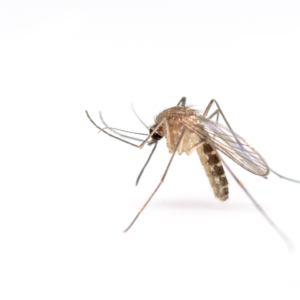Are you reluctant to expose yourself and your family to the chemicals found in commercial mosquito repellent?
Mosquito’s feed by injecting your skin with and sucking on your blood – sounds gastly doesn’t it! Your body reacts to the saliva resulting in a bump and itching. Some people react mildly to a bite or bites, while others have a stronger reaction and a large area of swelling, soreness, and redness can occur.

A homemade mosquito repellent using essential oils compared to a natural repellent brought from a shop is:
- fast acting
- easy to make
- not expensive
- pleasantly scented
- nontoxic
- customised
The essential oils will last a long time and give you many batches and you can use one essential oil on its own, or a combination of two or four customised to your liking. There are several essential oils well known to work against pests: these include citronella, eucalyptus, geranium, lavender, lemon, lemon eucalytus, lemongrass, lemon tea tree, peppermint, tea tree and thyme. Email me here to purchase your DIY kit
You may choose which of the above oils you use based on your scent preferences, so play around. e.g. lavender with geranium, lemon with tea tree and thyme or peppermint with lemon and eucalyptus or any other combination.
Once you’ve chosen which oil or oils to use, you can decide on a skin-friendly carrier for the mosquito repellent spray. The six most popular carriers are almond or other vegetable oil, apple cider vinegar, isopropyl alcohol, lemon juice, white vinegar, witch hazel. For each base, you’ll find a proven mosquito repellent spray recipe below.
How to Make a Homemade Mosquito Repellent with Essential Oil
Choose your preferred base and favorite scent to create your homemade mosquito repellent that is effective and DEET-free. DEET (is an abbreviation for Diethyl Toluamide) is a synthetic chemical and very common ingredient used in insect repellents and bug repellents for its long-lasting protection and has many adverse reactions on humans.
It’s important to note that with the product you make, it’s wise to always test it on a small area of skin first. Watch for irritation and other reactions before using it all over your body.

1. Almond Oil
– 1/3 cup almond oil
– 15 drops of essential oil
Almond oil has very little scent, so it’s great to use with essential oils. Add the almond oil to a small jar, then follow with essential oil. Screw the lid on the jar and shake, then apply the mixture using your hands to your body.
2. Apple Cider Vinegar
– 1/4 cup apple cider vinegar
– 40 drops of essential oil
Combine the apple cider vinegar with an equal amount of distilled or filtered water in a small spray bottle. The apple cider vinegar has quiet a strong smell, so peppermint or tea tree essential oil work to overshadow the smell of the vinegar. Shake well.
3. Isopropyl Alcohol
– 1/2 isopropyl alcohol
– 1/2 cup water
– 25 drops of essential oil
Combine Isopropyl alcohol with equal parts of distilled or filtered water in a small spray bottle. Add 25 drops of your favorite mozzie-fighting essential oil. Shake well.
4. Lemon Juice
– The juice of three fresh-squeezed lemons
– 2 cups of water
Lemon juice is effective at repelling mosquitoes, as well as cleaning your house! Combine the juice and water in a saucepan, bring it to a boil, and let it steep for about 1 hour. Let it completely cool and add it to a spray bottle.
5. White Vinegar
– 1 cup white vinegar
– 50 drops of essential oil
Just like apple cider vinegar, white vinegar has an odor, but it makes for a great base too. Mix it with nice smelling essential oil aromas such as geranium and lavender or lemongrass and eucalyptus to reduce the vinegar scent.
6. Witch Hazel
– 1/3 cup witch hazel
– 40 drops of essential oil
Combine the witch hazel with an equal amount of distilled or filtered water in a small spray bottle. It’s a great odourless base, so it pairs well with any essential oil. After adding the essential oils, shake the bottle to mix the ingredients.
*Be careful not to spray or rub these mosquito repellents in your eyes or on open cuts and scratches.
Compared with commercial products, homemade mosquito repellents tend not to last as long. Once the smell dissipates on your skin (after a couple of hours), you will need to reapply. Also, be aware that while natural solutions can be highly effective, they may not stand up to the most unforgiving tests e.g. a week long hike deep in the forest. But for everyday situations, such as restful afternoon in the backyard etc., these recipes offer a pleasant smelling, non-toxic protection and peace of mind that they are natural and safe.
You’ll be pleased to know, that like mosquitoes, other pesky insects such as flies, spiders, etc., tend to steer clear of many common essential oil scents, as in the recipes above, so do try using your customised DIY products for other situations!

